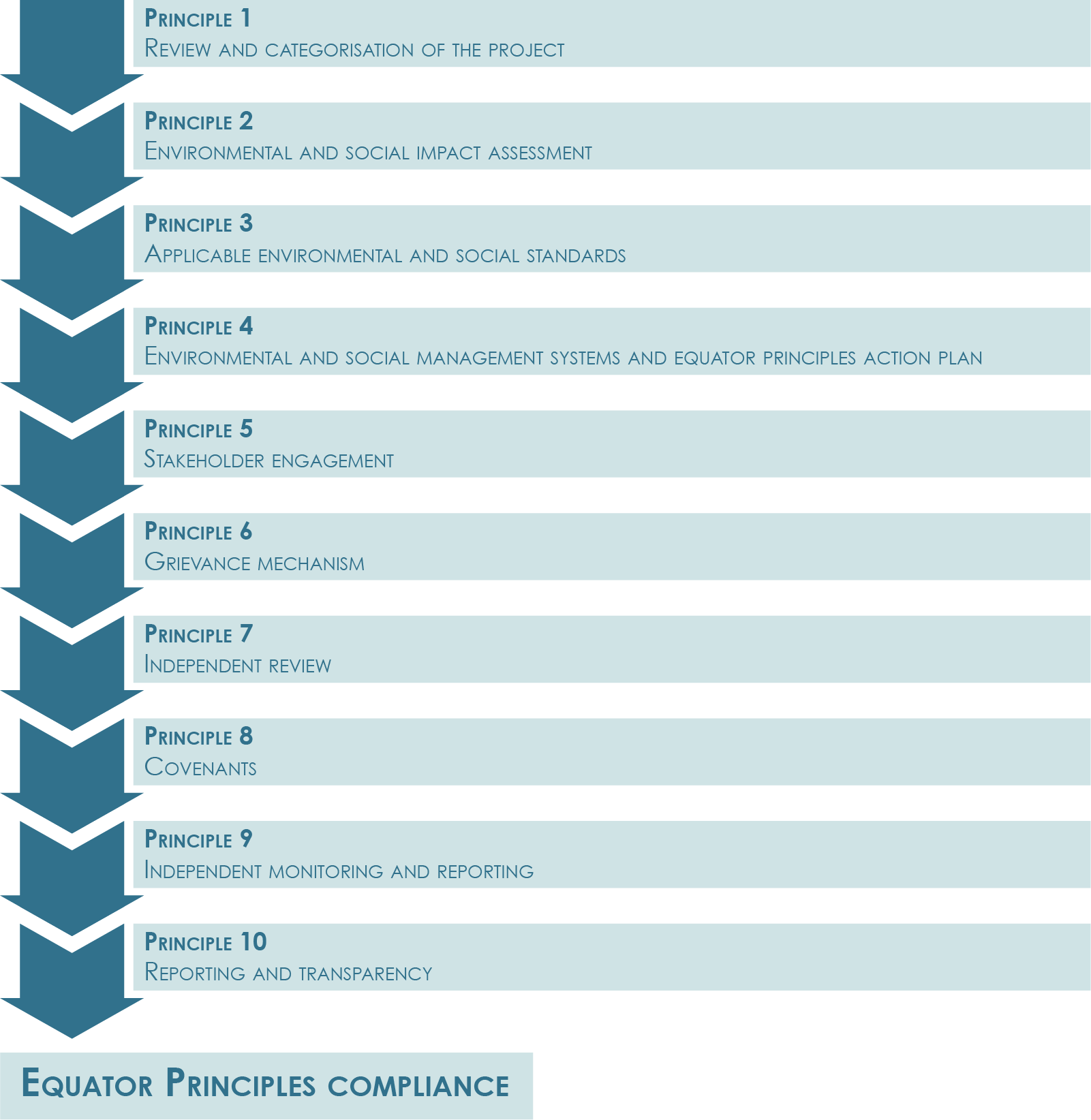The Equator Principles (EPs) are the banking sector's standards for managing the risks to people and the planet when banks finance large infrastructure projects. You can read more about the Equator Principles on their official website.
However, the Equator Principles do not stop banks from financing projects which damage people's rights and their environment and climate. In fact banks have financed some of the most damaging and controversial projects in the world under the Equator Principles.
This is because the Equator Principles are not strong enough to prevent damaging projects being financed, and because there is no accountability when banks finance projects that breach them.
BankTrack has campaigned on many projects that have been financed under the Equator Principles. You can read more about this work on our website.
The Equator Principles apply to any project around the world that is financed by a bank that has signed up to them – a so-called "Equator Principles Financial Institution" or EPFI. Currently, 138 banks in 38 countries worldwide have officially adopted the EPs.
The EPs consist of 10 Principles, summarised in the figure below.
The Principles require banks and their clients to identify and address any relevant environmental and social risks and impacts associated with the projects they finance. This assessment should consider the project's potential or actual human rights, environmental or climate change impacts and set out how the company developing the project plans to manage these impacts.
EPFIs have committed not to finance any project that does not comply with the Equator Principles.
Importantly, the EPs require banks to ensure their clients have properly engaged with affected communities, workers and other stakeholders. This includes ensuring that affected Indigenous Peoples have been afforded their right to Free, Prior and Informed Consent (FPIC). In addition, adopting banks must ensure that their clients have established an effective project-level grievance mechanism so that affected communities and workers can raise complaints about the project's environmental or social performance.
